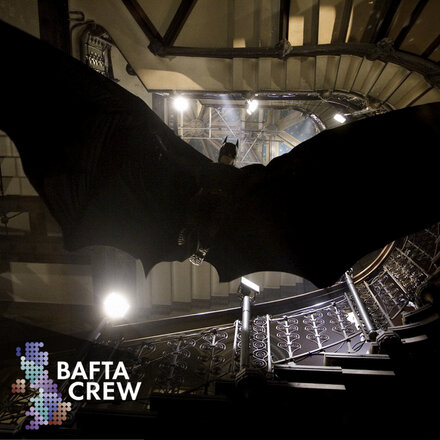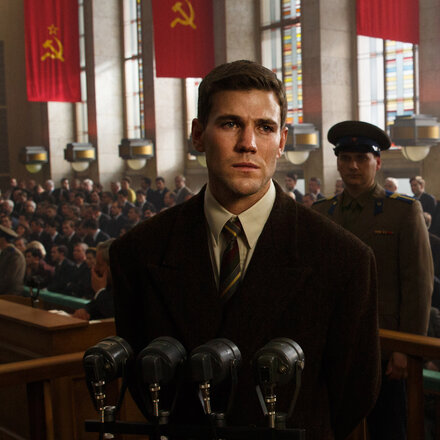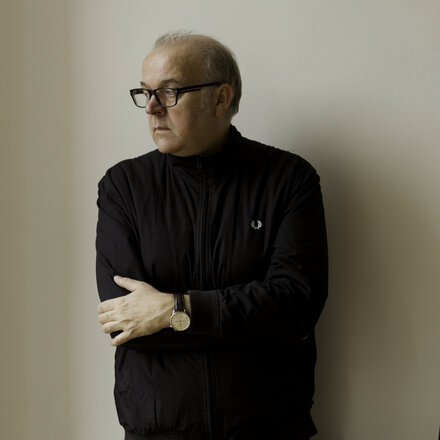The extraordinary thing about the score to Psycho is that it was written for strings only. So immediately Bernard Herrmann’s decided to do away with what your traditional orchestral palette might offer. There’s no woodwind, no percussion, no brass: you’re limited to just strings. The great thing about this is that you have a range of tonalities and effects, and also pitch – you can go from the very lowest note in the double basses right up to the higher harmonics in the violins. Also, you can pluck the strings, hit the instrument with your bow… there’s an awful lot of things you can do on strings to make it sound different.
So he chose this palette of sound to go with the film. Obviously, the film’s in black and white: his idea for it was that he wanted to make a ‘black and white score’ that complemented the b&w of the movie itself. And we know that b&w is incredibly evocative, in photography or in film: there’s an awful lot of tonal range and colour you don’t necessarily get in colour. There’s something about the tonality of the photography that made Bernard Herrmann think about this in strings only. He famously wrote a lot of odd ensembles anyway: he wrote for 12 pianos and 6 harps, and all sorts of strange things.
Another piece of very genius composition and orchestration on this film: on all stringed instruments there’s a thing called a mute, it’s a little velvet pad that goes across the strings and clips on near the bridge. It softens the sound and makes it very glassy and transparent and quite gentle, and so if you play it hard, you don’t get that much of a ‘screech’ out of your instrument. So the whole thing sounds very, very repressed. When you take it off, the sound is much brighter and sharper. All the way through this score the orchestra plays with the mutes on, apart from that one scene in the shower where those strings are hit as hard and as high as you can, and that’s what gives that incredible shrieking sound.
"There’s something about the tonality of the b&w photography that made Bernard Herrmann think about the score in strings only."
When you hear a restored version in a theatre, you notice the very different change in sound and actually how visceral, how shocking, that is. I’d never really noticed it before – aside from hearing it in the context of parodies and commercials – but once you get into the rhythm of the score you’ll really feel it when it comes in.
Aside from that you have this beautiful travelling music, which is very gentle. It’s a score that seems without any hope whatsoever: there’s not really any moment of redemption in the film. It feels very bleak and shocking: ‘visceral’ is a word I keep coming back to.
Interestingly enough it is the complete opposite of what Alfred Hitchcock had asked for. He asked Herrmann to score it with a very light, jazzy, be-bop kind of score. And Herrmann is famously a man who doesn’t really take instruction from anyone. I think he’s quoted as saying, ‘If I ever have to do what a director tells me to, I’d rather not do the film. I just can’t work like that.’ As a composer, one can understand the beauty of being allowed to do exactly what you want, but it’s very rare that you’re afforded the opportunity to do that.
Herrmann also thought that directors generally didn’t know anything about music, that if films were scored the way directors wanted, they’d be a disaster. So it’s a very bold statement to be making musically.
Famously Hitchcock did leave him to do exactly what he wanted. So there’s always this odd dichotomy: film composition and filmmaking is a team sport, and Herrmann was a hugely important part of the team, but wanted to do his own thing.
It’s probably the first film where parody was due to come soon after, because no one had ever, ever heard a sound like the one he made for the shower scene. Which again, astonishingly, Hitchcock had said he didn’t want any music for – he wanted it all done on sound – the sound of the curtain ripping, some dull screams and the water going down the drain. It was when they screened it that Hitchcock was very worried and thought he might cut the scene down. And Herrmann said ‘I’ve got an idea…’
What you’re about to see is the culmination of the brilliance of those ideas. So we won’t waste any more time. I hope you enjoy Psycho and thanks very much for coming.
Composer David Arnold (Little Britain, Casino Royale), 2 April 2011.
In the IT industry there is a lot of vocalization regarding vce files the cost of IT training and continuing education pertaining to certifications. Some employers worry that additional training and certification will lead employees to seek new jobs and employees often https://www.4itexam.com/ wonder if the cost of these certifications are a worthwhile investment. The combination sy0-401 vce of misunderstood metrics and cost of training create a weird dynamic that sy0-401 dump cause both employees and employers to weigh the added value of these certifications.
The CompTIA A+ Certification is a good example CA1 001 dump illustrating this point. After January 1, 2011 CompTIA A+, CompTIA Network+, CompTIA Security+ and CompTIA Advanced Security Practitioner (CASP) certifications became valid for three years from the date of certification instead of life. The exam 220-901 dumps costs alone add up which isn't so bad if you're earning n10-006 vce higher wages because of the certifications. If you require additional training on top of that, well, now you're looking at potentially thousands every three years. Both companies and individuals n10-006 comptia network certification start to wonder if the benefit pays off.
For IT professionals obtaining certification security+ vce is generally driven by the desire for a higher salary. Let's be real, who doesn't want to earn more?
Well, here are some interesting facts that help put things in perspective...
The CompTIA A+ Certification has been the industry standard for measuring the knowledge cas-002 vce of an IT tech's abilities in software and hardware. IT technicians who have certifications lx0-103 vce typically receive higher salaries with the majority achieving continued career advancement.
CompTIA Certification holders network+ braindump n10-006 as a rule have:
More career options
Obtain Higher Salaries
On average, certified professionals vce security+ make 5-15% than their non certified peers.
Are a perceived asset by employers
Instill confidence in employers
On the flip side, for many companies comptia network+ n10-006 vce IT certifications have been and still remain the standard by which they measure knowledge. Whether this is right, wrong, good or bad many companies actually require certifications for consideration. Unfortunately, IT training and certifications comptia exam are mis-understood by employers creating skewed bench marks which in turn devalue certifications.
CompTIA released a statement on Wednesday, April 11 2012 addressing the importance of educating 4itexam the employer to understand the pcnse7 dumps value of IT training and the benefit of hiring a skilled worker who would provide added value to the corporation. "We haven't necessarily sold this to the employing world, that if they get a skilled person, it's much better csqa for them long-term," Erdle said. "And certification is a good metric of that."
It is clear that IT certifications such as the CompTIA A+ Certification is an added benefit to any professional's career. Perhaps, as CompTIA suggests, educating the employer to better understand the value of training will help more accurately assess the true value of the certification.






